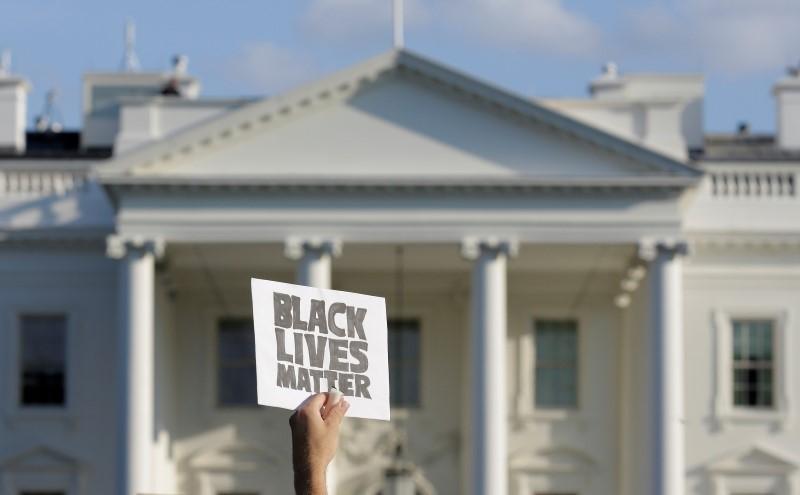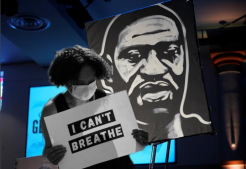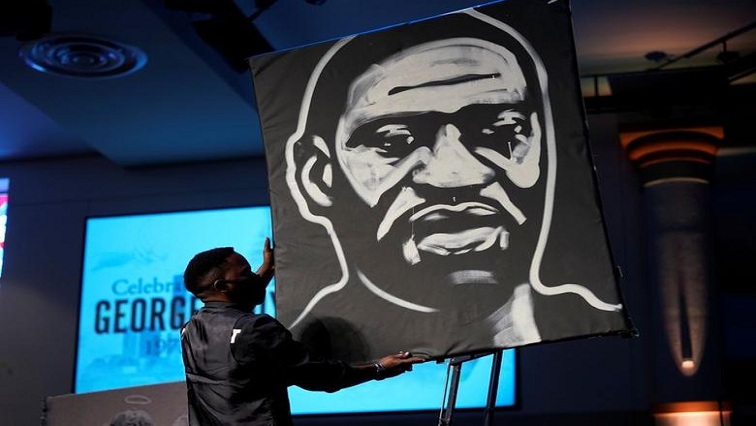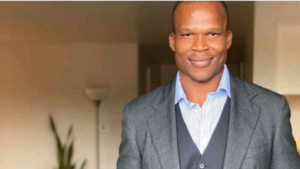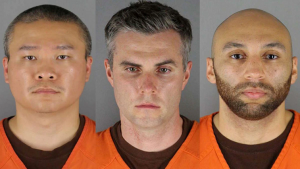For far too long, South Africans together with the rest of the world have been periodically disheartened with sickening news of US police brutality on the so-called people of colour and black men in particular.
This week, amid a supposedly celebratory mood of savouring a rare conviction of a white officer Derek Chauvin on the very public fatal suffocation of George Floyd in Minneapolis last year, the notorious US police brutality hit home in South Africa in the most unexpected manner.
One of our own, Lindani Myeni, was gunned down by apparently trigger-happy police officers in Honolulu, Hawaii in the US, who were responding to a call of a “burglary in progress”.
Unbeknown to the cowboy-like Honolulu police officers, Myeni aged 29, married to Lindsay and blessed with two beautiful little ones, was a self-respecting, family man and a beloved prominent citizen of his native land South Africa. Four shots rang from police pistols and a shout of “police!” was heard from one of the official police recordings. Moments later Myeni, a former professional rugby player from the scenic Empangeni in KwaZulu-Natal lay dead, his lifeless body riddled with bullets that truly know how to sniff out a life.
To get a proper perspective on the racially-skewed US police brutality, one needs to read a recent report published by the Statista Research Department. It read, in part, as follows: “Sadly, the trend of fatal police shootings in the United States seems to only be increasing, with a total 213 civilians having been shot, 30 of whom were black, in the first three months of 2021. In 2020, there were 1 021 fatal police shootings, and in 2019 there were 999 fatal shootings. Additionally, the rate of fatal police shootings among black Americans was much higher than that for any other ethnicity, standing at 35 fatal shootings per million of the population as of March 2021.”
In a separate report by CBS News, police in the US mowed down “164 Black people in the first eight months of 2020”. The report goes on to list the many victims, from Jamarri Daiwon Tarver to Darius Washington.
Perhaps to try and hammer the connection between the killing of our own Myeni and hordes of African-Americans whose lives have been cut short by US police, let me paint the following picture from a report by the BBC highlighting a synopsis of some of the more prominent Myeni-like killings:
*On July 17, 2014, Eric Garner dies after being wrestled to the ground by a New York police officer on suspicion of illegally selling cigarettes. Following widespread riots, the police officer involved was later fired but was never prosecuted.
*9 August 2014 – Michael Brown (18) was killed by a police officer in Ferguson, Missouri, who was responding to reports that Brown had stolen a box of cigars.
*4 April 2015 – Walter Scot, shot in the back five times by a white police officer. He had been pulled over for having a defective light on his car in North Charleston, South Carolina.
*5 July 2016 – Alton Sterling killed in Baton Rouge, Louisiana after police responded to a disturbance outside a shop. His death led to days of protests.
*18 March 2018 – Stephon Clarke dies after being shot at least seven times in his grandmother’s backyard in Sacramento, California, by police who were investigating – similar to the Lindani Myeni’s case – a nearby break-in. Clarke was completely unarmed, and only his cell phone was found in the scene. Typically, his death sparked major protests.
*13 March 2020 – Breonna Taylor, a 26-year-old Emergency Medical Technician, is shot eight times when police raided her apartment in Louisville, Kentucky. Her family filed a lawsuit against the police and later reached a settlement of more than R500m. The lawsuit stated that Ms Taylor’s partner – who was with her at the time – had fired in self-defence because the police did not identify themselves, and he feared the apartment was being burgled and, lastly,
*25 May 2020 – George Floyd dies after being arrested in Minneapolis and held down by police officers, one of whom – Derek Chauvin – had his knee on Mr Floyd’s neck for more than nine minutes. He pleaded in sheer desperation that he couldn’t breathe, calling in vain for his mom to come and help, whilst his life was ebbing away mercilessly. This week Chauvin was convicted on three counts of second-degree murder, third-degree murder and manslaughter amid widespread celebrations swiftly followed by US President Joe Biden’s address to nation endorsing the conviction.
This is the climate – the environment in which our beloved Lindani Myeni emigrated to earlier this year in search of a better life for his family, an opportunity for all of them to “live the dream” like many emigrants before them.
What can our government do under these kinds of circumstances? Well, in my book they have to do what the American government would do had the shoe been on the other foot, the roles been reversed – demand answers!
Demand answers not only for Lindani Myeni but for all those “people of colour” and black men in particular who are constantly a moving target of a dangerous bunch of trigger happy men and women hiding their white supremacist tendencies behind a badge.
Demand answers for Myeni’s little children, on whose innocent minds America is still a land of mink and manure and a destination of choice.
Demand answers for Myeni’s widow Lindsay, who was part of the family’s decision to relocate to a place where life would hopefully breed everlasting fond memories, not grief and dismantling of her blossoming family.
Through the Department of International Relations and Cooperation (DIRCO) demand answers on behalf of all South Africans. We demand to know what happened to one of us in far-flung places under mysterious circumstances.
Finally, demand answers on behalf of all “people of colour” all over the world – from Cape to Cairo, the Caribbean Islands, Latin America, Europe, etc., particular those who are trapped in the belly of the beast – the African-Americans whose forebears were shipped out of the African continent against their will to go and develop America with their cheap slave labour.
We should commend the KwaZulu-Natal Premier Sihle Zikalala and his provincial government for lending a hand to the family of the slain young Myeni, barely 30 and full of life and dreams abruptly brought to a cruel end by a notorious police force whose reputation precedes them.
Finally, the least that our government can do is to ensure that the remains of Lindani Myeni are brought back home to South Africa, where he can be accorded a decent, dignified send-off and buried in the cemetery of his loved one’s, his community and among his countrymen and women.
That’ll be the most desirable closure to a sorry saga that is a symptom of a police force that’s a law unto itself.


